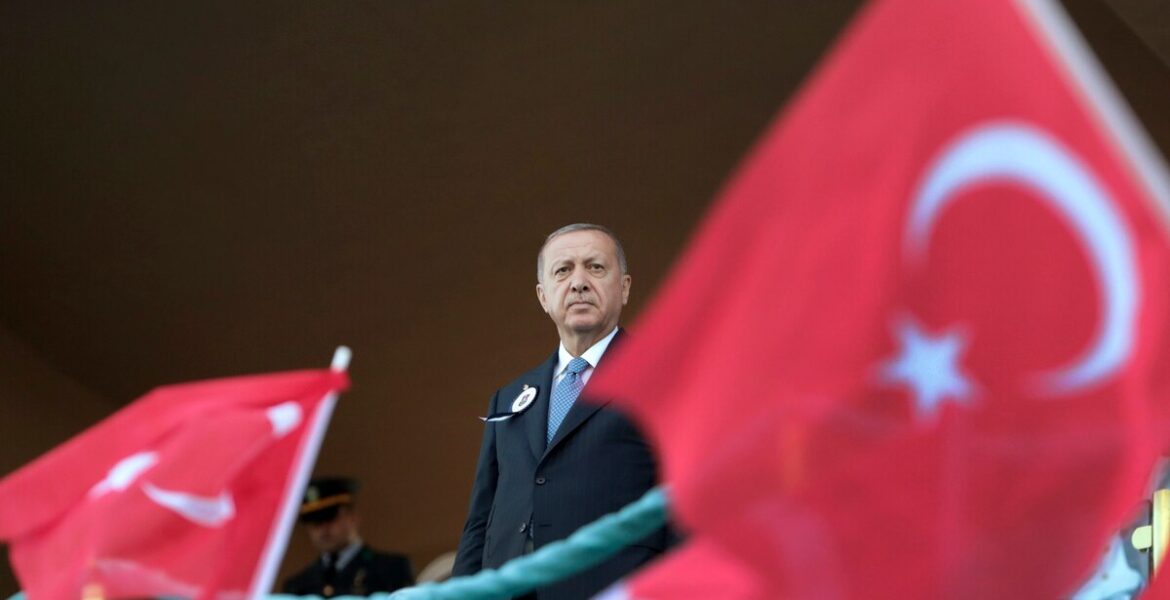It is not words that have sabotaged Turkey’s foreign relations with its neighbours, it is the criminal actions of dictator Erdoğan’s regime which resulted in the death of thousands and the destruction of cities in Syria, Libya and other places.
Therefore, a radical change in policies is required by Ankara to deescalate tensions with other countries, and not only promises and empty words that we have been hearing from Turkish officials for years.
The “zero problem policy”, which was once Ankara’s ticket to develop its economy and tourism sector, has disappeared.
Today, everyone is looking at Turkey as an existential threat.
Recent figures have shown a dramatical drop in trade with some major Middle Eastern countries - obviously a response to Erdoğan’s continuous malign work.
For example, governmental figures have shown that Turkey’s exports to Saudi Arabia fell by 12.1% in October 2020 compared to the same month last year.
Trade is without doubts a very strong weapon which must be utilised to curb Erdoğan's expansionist dreams, especially by heavily sanctioning Turkey’s defence and energy sectors.
Human rights violations and war crimes committed by Erdoğan and his mercenaries should not be ignored anymore. Lawmakers must understand that the policy of appeasement does not work with dictators, in fact, it emboldens them and gives them time to become stronger.
Then it will be too late to take effective actions and protect human lives.
But the good news these days is that sanctions are looming, and this is why Erdoğan is so scared and has ordered Foreign Minister Mevlüt Çavuşoğlu to beg the EU not to impose any sanctions.
Çavuşoğlu in a recent statement said that the EU should “act with common sense” and stressed that Ankara wants good relations with the bloc.
However, words form Turkish officials are not trustworthy given that they have been promising good relations with their neighbours for years but never kept their words. Thus, the question is why should EU members believe what the Turkish regime is saying now?
The EU is meeting today, and many observers believe that a unified decision is finally possible after months of debates and division among EU countries on the issue of sanctioning Turkey over its violations in Eastern Mediterranean waters.
Germany, which once was the biggest defender of Turkey in the bloc, has changed its tone.
Heiko Maas, the German Foreign Minister, stated that there are “too many provocations” from Turkey that makes any direct talks with Athens impossible. His statement is a clear indication that the time of negotiation with Turkey is almost over.
Moreover, France has been leading the campaign to sanction Turkey for months inside the EU.
Thus, an apparent agreement between Germany and France on this matter would make it difficult for other parties to oppose any introduced sanctioning bill, especially since the EU parliament recently voted in favour of a resolution to impose urgent sanctions against Turkey on the grounds that it is “putting the regional peace at harm”.
Furthermore, on a related matter, the US House of Representatives passed a defence legislation that will force the US administration to impose sanctions on Turkey for buying the Russian S-400 missile defense system.
It is now a matter of time until the defence bill goes to the Senate and becomes a reality unless it is vetoed by the United States president.
Overall, these American sanctions will definitely impact the Turkish government’s ability to deal with US banks, which will push thousands of potential investors away from Turkey.
In fact investors are already worried about their current investments, and many have already sold their bonds because Turkey is not a safe place for businesses anymore.
As for the EU sanctions, if imposed, will likely impact Turkey’s energy sector and its ability to continue its illegal drilling in the Eastern Mediterranean.
Josep Borrell, the EU’s chief diplomat, elaborated that EU sanctions could target ships and other assets involved in the drilling, as well as denying Turkey from using EU ports and supplies made in the Union.
It seems that waving of sanctions against Turkey is over, and now the time has come to actually impose them. Millions who have suffered from the Turkish regime's aggressions will celebrate such sanctions with the hope that it will end any future violations.
The views of the author do not necessarily correspond with those of Greek City Times.
Abdulrahman Taleb, is a British-Arab researcher in Middle East North Africa studies


